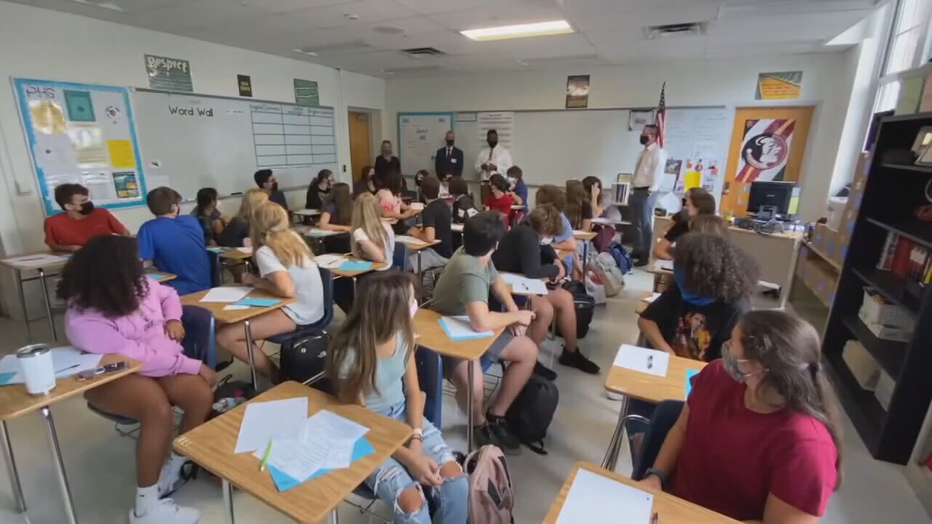TEA commissioner admits objectionable materials can be taught in classrooms
TEA commissioner admits objectionable materials can be taught in classrooms
Commissioner Mike Morath explained to lawmakers that many of the state's education standards are broad and open to interpretation which can also open the door to problems. He said school districts are putting the burden on teachers to find their own instructional materials without giving them extra time to do so.
DALLAS - The commissioner of the Texas Education Agency told state lawmakers that the state's current education policies sometimes allow objectionable materials to be taught in the classroom.
It's an issue lawmakers will likely try to address in the next legislative session.
Commissioner Mike Morath explained to lawmakers that many of the state's education standards are broad and open to interpretation which can also open the door to problems. He said school districts are putting the burden on teachers to find their own instructional materials without giving them extra time to do so. He gave an off-the-cuff hypothetical.
"One standard is ‘describe how a person's ideas have changed the past and present.’ I could probably teach anything. I could describe my uncle and how he changed his neighborhood by, I don't know, going out and being drunk. That is arguably teaching that standard," he said.

With some conspiracy theories circulating about what's being taught in Texas schools, State Rep James Talarico (D-Round Rock) asked Morath a direct question.
"Are you aware of any curriculum in the state that bullies students based on race or grooms them with pornography?" Talarico asked.
"I would tell you it is a big state. The world is complex. The short answer to that question is yes," Morath said. "We've reviewed materials made available to students that in some cases I think the common citizen would agree would be inappropriate."
Morath added that he cannot say it is a widespread problem. He explained that if state lawmakers are concerned, they could revise education policy to add more safeguards.
"I do think the question of what our kids are taught is a deeply important question. I've had my kids in two different schools, and I've seen them taught some stuff that ain't great, as a dad. The focus on quality making sure it is free of ideological bias. These are worthy objectives," he said.
Morath said when it comes to selecting library content, many districts are putting a lot of faith in third-party reviewers without reading the materials themselves.
"If you have a system with no oversight for the selection, a lot of weird things can occur in the process. So then the question becomes, should you strengthen your oversight procedures for selection?" he said.
In April, the TEA issued new guidance urging districts to give parents more input on content decisions -- but ultimately leaving final approval with school boards.
Many districts already have long-standing policies on classroom and library content that involve parents and educators.
However, the chair of the committee said he was bothered by what he called the lack of more specific curriculum standards.
"Suppose we let every district decide how long the football field is," said State Rep. Harold Dutton (D-Houston.) "You would have some unusual football games. I look at curriculum in the same light."
Morath also explained that a common problem in underperforming schools is that they are lacking a viable curriculum.
Exactly how to improve the state's education standards will likely be a hotly debated issue in the next legislative session.

